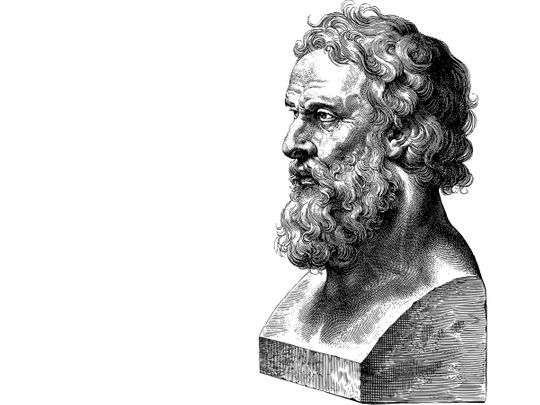
The Greek theorist Plato is perhaps one of the world’s best-known philosophers, and his most famous work – the Republic – has been taught in universities around the globe for decades. But just what did he say that was so significant?
Click start to play today’s Crossword, where you can find “Plato” in the answer to one of the clues.
Here are three breakthroughs from Plato that contributed to the world’s understanding of society and human nature:
1. Justice over everything else
As a student of another philosophical giant, Socrates, Plato agreed with his teacher in that justice is vital to happiness. He once wrote that a just person enjoys an “internal order”, while someone who is unjust is at odds with himself. It’s also why Plato was not a proponent of democracy. He thought nations should be ruled by “philosopher kings” – individuals with high-minded goals, like the pursuit of knowledge and justice – who would govern using virtuous standards, and not fall for the whims of public opinion, which Plato called the “Great Beast”.
2. Equality of women
Although Plato acknowledged that men were superior in terms of physical strength, in all other aspects, he believed women to be equals. His visionary outlook was considered to be unusual at a time when egalitarian societies were almost non-existent. In his description of an ideal state, Plato described how women fitted in: “The same natures must be allowed the same pursuits.”
3. The importance of maths
Plato believed that numbers and forms are objects of pure thought. In his description of an ideal state, he wrote that it was vital to include the study of mathematics during a child’s formative years. According to Plato, “there is no truth to be found in changing things,” and since maths was absolute and true, it held the highest position among all subjects. As far as Plato was concerned, other fields, such as the natural sciences, would always change and would “come to be this or that at some time and then cease to be”.
What do you think of Plato’s philosophies? Play today’s Crossword and tell us at games@gulfnews.com.



